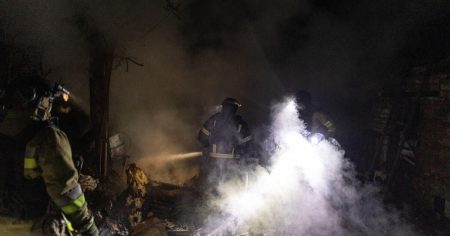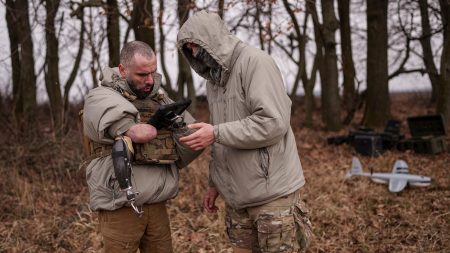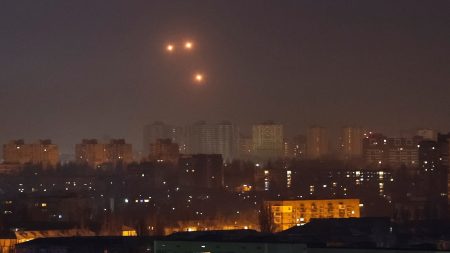The Return of Hostages: A Somber Moment in the Ceasefire Agreement
The recent announcement of the return of hostages from Hamas to Israel marks a poignant moment in the ongoing conflict. According to an Israeli official, the remains of Shiri Bibas and her two children, Ariel and Kfir, along with 83-year-old Oded Lifshitz, are to be returned. This handover is part of a ceasefire agreement, bringing a mix of relief and sorrow to the nation. The Bibas family, taken from Kibbutz Nir Oz, has become a symbol of the human cost of the conflict, with their fate uncertain for much of the war. The family has requested that the public await forensic confirmation before mourning, reflecting the delicate balance between hope and realism.
The Bibas Family: A Symbol of Resilience and Tragedy
The Bibas family’s story has deeply resonated with Israelis, embodying the plight of those taken captive. Their uncertain fate during the war intensified the nation’s anxiety, making their return a moment of both sadness and reflection. Prime Minister Netanyahu’s statement highlights the national grief, underscoring the emotional impact of their loss. Yarden Bibas’s earlier release offers a glimmer of hope, yet the return of his family’s remains serves as a stark reminder of the conflict’s brutality.
Oded Lifshitz: A Life Dedicated to Peace and Justice
Oded Lifshitz, a retired journalist and advocate for Palestinian rights, represents a different facet of the conflict. His dedication to peace and justice, including aiding Palestinians in accessing medical care, stands in stark contrast to the violence that took his life. His family’s statement, balancing hope with preparedness for the worst, illustrates the emotional turmoil faced by loved ones of hostages. Lifshitz’s legacy serves as a poignant reminder of the humanitarians lost in the conflict.
The Ceasefire Deal: A Complex Exchange
The broader context of the ceasefire agreement reveals a complex exchange: the return of hostages and bodies in exchange for the release of Palestinian prisoners. Hamas’s announcement to free six living hostages alongside the return of four bodies signifies the initial phase of this deal. This process, while offering hope for some, is tempered by the knowledge that eight hostages are believed dead. The agreement’s first phase includes the release of 33 hostages and hundreds of Palestinian prisoners, many serving life sentences.
The Impact of Hostages’ Release on Israeli Society
The return of 19 living hostages has brought joy across Israel, but the return of bodies on Thursday is expected to be met with somber reflection. The Bibas family’s plight has encapsulated the nation’s sorrow, with their story echoing the pain of many. The release of six more hostages on Saturday offers hope, yet the ongoing uncertainty for others keeps tensions high. The emotional rollercoaster experienced by Israelis highlights the profound impact of such conflicts on communities.
Reflections on Humanity Amidst Conflict
The ceasefire agreement and hostage returns underscore the complex interplay between conflict and humanity. While the exchange of prisoners and hostages is a necessary step towards peace, the emotional toll on families and communities remains immense. The stories of the Bibas family and Oded Lifshitz remind us of the human cost of war, emphasizing the need for empathy and understanding. As the situation evolves, the focus remains on the safe return of all hostages and the hope for a lasting peace.















